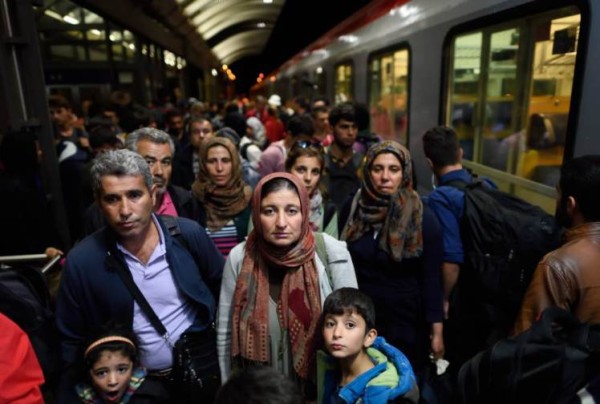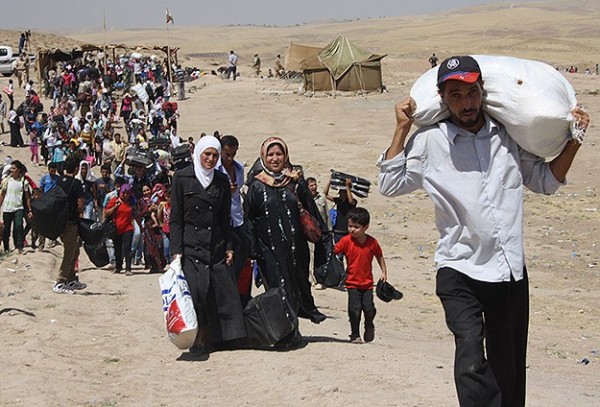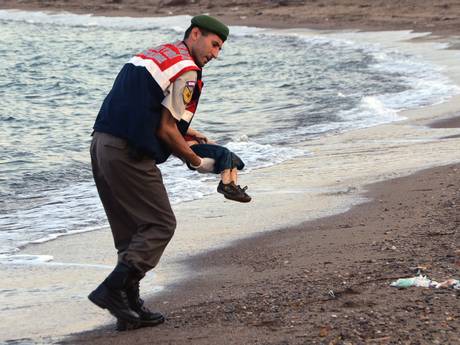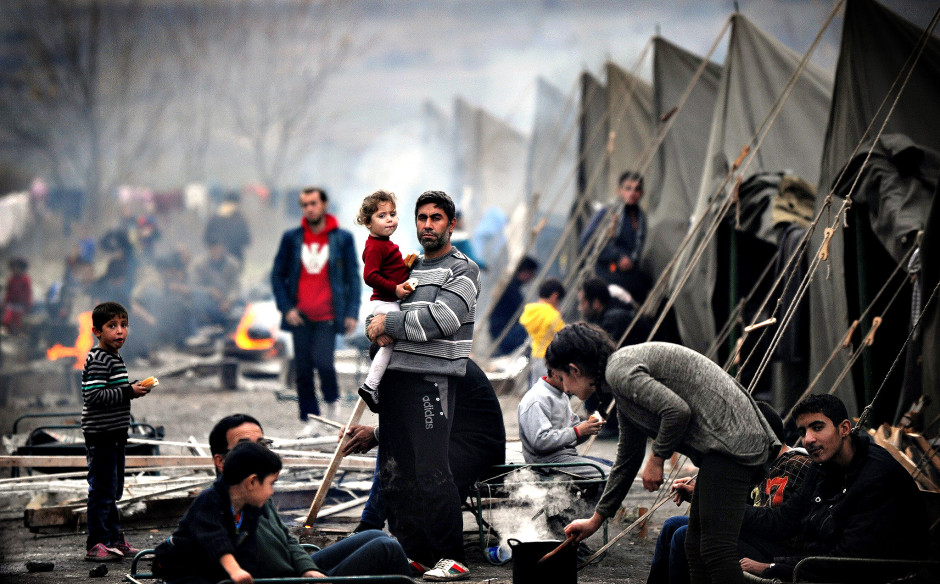
The refugee crisis presently convulsing Europe owes its origins, in part, to the ongoing civil war in Syria, which has claimed the lives of some 250,000 Syrians since 2011 and may go on for years. The war itself is the fault of the dictatorial Syrian regime, which opened fire on peaceful demonstrators demanding long overdue political and economic reforms. Having been violently rebuffed by Assad, the protesters took up arms to achieve their laudable objectives.
But in the process, Syria has been destroyed as a functioning country, its towns and cities lying in ruins. Syria has degenerated into a failed state in which 11 million people have been displaced and fewer and fewer of its citizens can live in peace and security.
Many of the migrants come from other zones of conflict, Afghanistan and Iraq, which have been mired in warfare for more than a decade, and from impoverished countries in Africa, which are bogged down in a culture of cronyism and corruption.
Having given up on the prospect of a peaceful resolution of the war in Syria, four million desperate Syrians have emigrated, bound for neighboring Muslim nations like Turkey, Lebanon and Jordan. These countries have more or less reached their absorptive capacity, and as a result, Syrian migrants have begun heading toward western Europe. Meanwhile, refugees from Africa keep pouring into the European continent.

All too often, they take immense risks to get to their destinations, piling into unseaworthy vessels in an attempt to reach the European mainland. More than 2,000 migrants have drowned en route to Europe, including Aylan Kurdi, a three-year-old Syrian Kurdish boy who was travelling with his family from Turkey to Greece when their boat capsized. His body washed up on a beach in Turkey, and the poignant photograph of a Turkish soldier cradling him in his arms caused an outcry in Europe.

The boy’s tragic death prompted Hungary to send thousands of Syrians stranded in Budapest to Germany, where the majority of the refugees wish to settle. In a compassionate gesture worthy of commendation, German Chancellor Angela Merkel has offered to resettle hundreds of thousands of migrants.
Germany should not be expected to shoulder the burden alone. Russia, Syria’s closest ally outside the Middle East, should welcome the Syrians with open arms. So should developed countries like Britain, France, Italy, Holland and Belgium. Saudi Arabia and the Gulf states, which support Syrian rebels fighting to overthrow Assad, are sufficiently wealthy to integrate tens of thousands of migrants.
The United States ought to admit many more Syrians than it has until now. Canada, which has a long and honorable history of welcoming newcomers from Europe, Asia and Africa, should invite the Syrian migrants as well. In line with Liberal Party leader Justin Trudeau’s suggestion, Canada can easily digest 25,000 in the next few months.
Jewish communities in the Diaspora should build bridges to Muslim communities by offering empathy and assistance to the refugees. It would be an investment with a potentially beneficial outcome.
Israel — a nation populated by refugees and forged by the memory of the Holocaust — should accept Syrian refugees, as Israeli opposition leader, Isaac Herzog, has suggested. In particular, Israel should consider admitting a token number of Christians and Druze.

During the late 1970s, Israel accepted some Vietnamese boat people, and in 2000, it offered to absorb soldiers from the disbanded South Lebanon Army. In recent years, however, the Israeli government has tried to prevent African asylum seekers from entering or settling permanently in Israel.
We need to face the plain but politically incorrect truth that it would be unwise for the Israeli government to accept significant numbers of Syrians as refugees. Israel and Syria have been in a state of war since 1948, and virtually every Syrian has been brainwashed to hate Israel and distrust Jews.
Cognizant of the mental baggage the Syrians carry, Prime Minister Benjamin Netanyahu has rejected the notion of a Syrian refugee inflow into Israel. He added that the Israeli government has already extended humanitarian aid to 1,000 Syrians who’ve crossed the border since 2011.
But in explaining his position, Netanyahu was less than frank, claiming that Israel’s absence of “demographic depth” and “geographic breadth” does not allow it to adopt an open-ended attitude toward the refugees.
In truth, Netanyahu omitted a substantial chunk of the story. Israel depends on aliyah to sustain its growth and maintain its vitality as a Jewish state. Israel has thus gladly welcomed Jewish immigrants from the four corners of the world, be they Moroccans, Yemenites, Canadians, Americans, Poles or Russians.
And if 50,000 French Jews suddenly descended on Israel, Netanyahu would not be harping on “demographic depth” or “geographic breadth.” He would be jumping for joy, knowing full well they would be an asset to Israeli society.
Netanyahu would have been wiser had he issued a full explanation of his refugee policy instead of fudging the issue. The migrant crisis calls for candor, not disengenousness.
